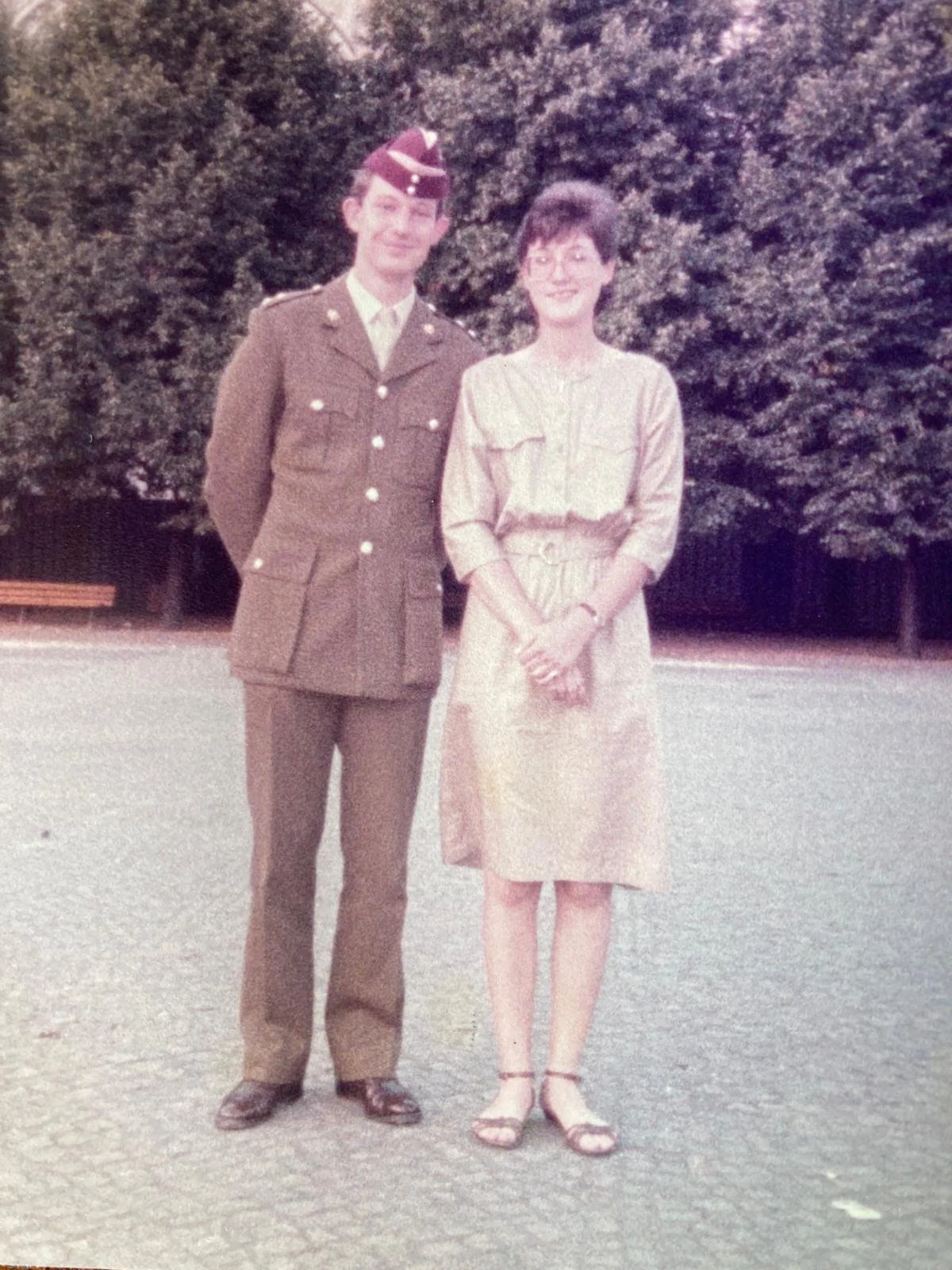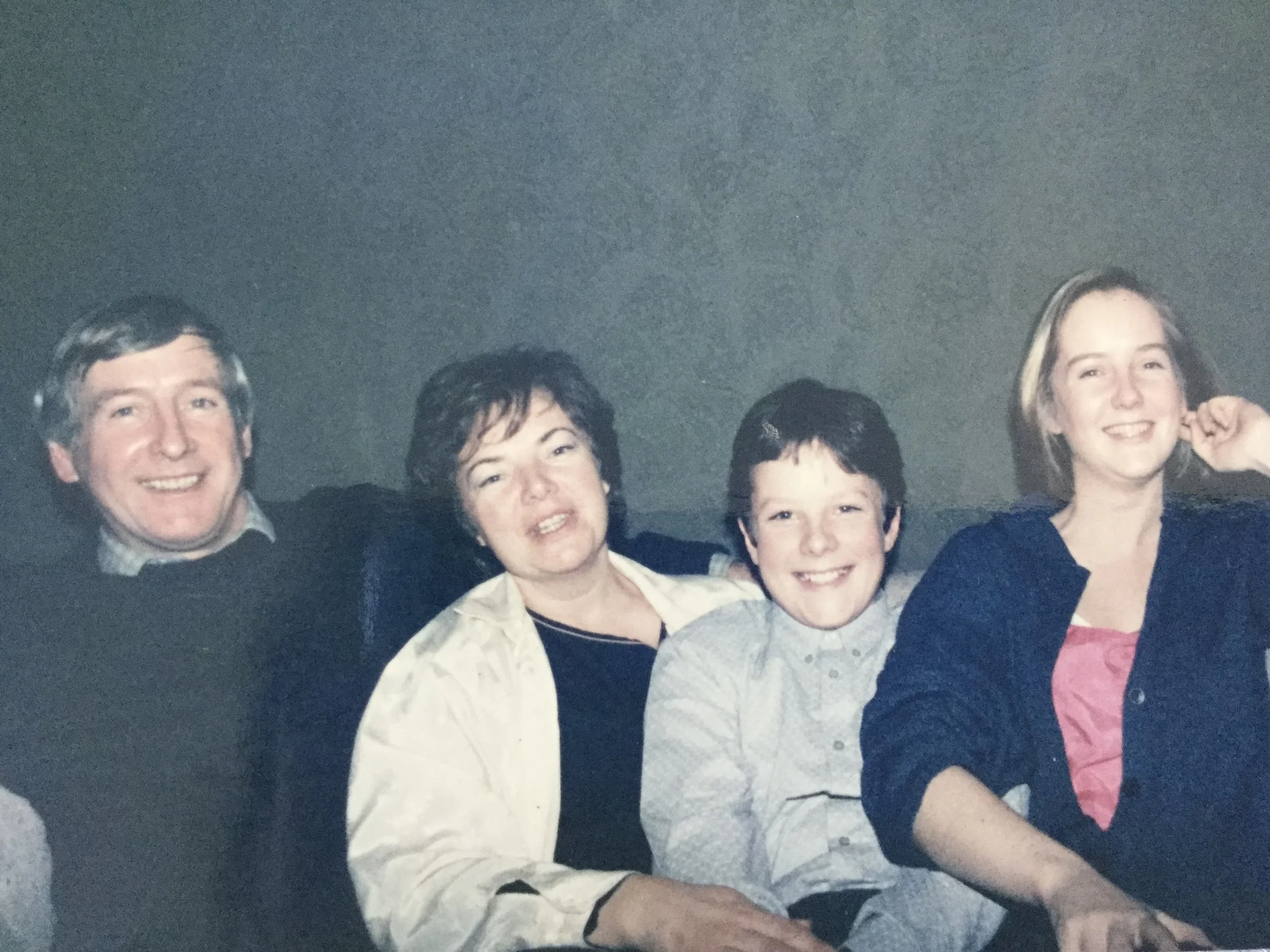Ministers finally agree a date to meet Chinook disaster families – after 18 months of refusing
Meeting comes as world-leading US family psychologist says relatives are suffering from ‘Ambiguous Loss’: the frozen trauma behind relatives’ fight for justice
Three MoD ministers and Victims Minister will meet families next month following last month’s snub when the MoD refused to accept a letter delivered by the families.
Failure to allow relatives to see the bodies of the 29 killed in the 1994 crash adds to the sense of suspended grief, says leading US family psychologist
House of Commons Library publishes briefing paper ahead of a Westminster Hall debate on the crash on Wednesday November 26th
UK Government ministers have finally agreed to meet the families of those killed in the 1994 Chinook helicopter disaster who want the files on the crash released, and a judge-led public inquiry.
For the last 18 months, repeated requests to meet ministers, including the Prime Minister and Defence Secretary, have been rejected.
Now three MoD ministers – Lord Coaker, Al Carns, and Louise Sandher-Jones – as well as the Victims Minister Alex Davies-Jones have agreed to meet the families on Tuesday December 16th at the Ministry of Defence.
The move comes as two leading experts have stated that the relatives of the 29 victims continue to live with a unique form of unresolved grief — described by world-renowned US family psychologist Dr Pauline Boss as ‘Ambiguous Loss’.
For three decades, the families have faced a fog of official secrecy, denial, deceit, and dishonesty from the UK Ministry of Defence along with shifting explanations and an absence of evidence.
The UK Government has sealed crucial files until 2094 - long after even the children of those who perished in the crash will themselves have died, leaving families without answers about why their loved ones were placed aboard a helicopter that was known by the RAF and MoD to be unairworthy.
Dr Pauline Boss - University of Minnesota
Dr Pauline Boss, Professor Emeritus at the University of Minnesota, who developed the theory of Ambiguous Loss, said: “I am so sorry to learn about the mystery surrounding this tragic crash and the ongoing, frozen trauma suffered by the families of those who died. Ambiguous loss is one of the most painful kinds of loss because you can’t make sense of it.
“This is an example of a case that doesn’t make sense, because information has been withheld. If you can’t make sense out of your loss, then you can’t cope with it.
“There is no such thing as closure. We have to live with loss, clear or ambiguous. So, clarity is the goal. But with ambiguous loss, people feel their power has been taken away because there are unanswered questions.
“One of the ways to deal with ambiguous loss is to give survivors as much information as possible. If there’s no meaning to what’s happened, then people are frozen. These families are stuck, and that’s a terrible place to be.”
Boss also points to the fact that most of the widows did not get to see the bodies of their husbands after the crash – the coffins were sealed.
She says: “No matter how maimed the body is, the authorities should give the families a choice. If authorities don’t let them see the body it becomes a double ambiguous loss, because if they are not given the choice, it then increases the mystery and suspicion that something is wrong. It’s cruel.
“It has taken power away from those left behind, it disenfranchises them – and they already have little power because of the lack of information and answers.”
Major Christopher Dockerty with sister Nicola
Nicola Rawcliffe, whose brother Chris was one of the victims, said: “The actions of the MoD and the Government continue, daily, to cause not just emotional and psychological distress but intellectual distress as well.
“We have mountains of evidence about the circumstances surrounding the crash, but the MoD and ministers deny the reality, refuse to acknowledge the evidence or - until now - to meet us.
“So far, they have made out that we families are stupid and should go away. All of this adds to the ambiguous nature of our loss and is an unacceptable abuse of power from a government committed to candour.
“Perhaps now they have deigned to meet us – not just one minister but four of them - we are getting somewhere – we will see.”
Dr Simon Robins
A paper written for the Chinook Justice Campaign by social scientist, Dr Simon Robins, a research advisor to the International Committee of the Red Cross and an expert in ambiguous loss, states: “The search for truth – ongoing despite the pilots being formally cleared in 2011 – has meant that families live with contradictory realities: their loved ones are gone, yet the truth about what happened remains contested and incomplete.
“This lack of recognition, and apparent dismissal of the loss of the families, prolongs suffering, complicating efforts to reconcile emotions with reality.”
Human-rights lawyer Mark Stephens CBE, from Howard Kennedy LLP, solicitor for the Chinook families, said: “What Dr Pauline Boss and Dr Simon Robins describe as ambiguous loss precisely captures the torment these families have endured for more than three decades.”
With no hint of irony, the UK Government’s recently issued response to the families’ Judicial Review application, states: “A central consideration is whether it is reasonable to take further investigative steps, having regard to the passage of time and its impact on the evidence, as well as the practical benefit that any further investigation could achieve. Further analysis of airworthiness 31 years on is unlikely to shed meaningful light on the circumstances of the accident, nor achieve any practical benefit.”
Mark Stephens points out: “The Government simply misses the point. The families loved ones’ deaths were effectively brushed under the carpet, denied their right to life, without full disclosure, and the State has since locked away the evidence that could resolve all of those uncertainties for those left behind, including all of the younger families.
“Ambiguous loss isn’t just emotional, it’s psychological and intellectual — and it’s the consequence of institutional opacity. Only full transparency and a judge-led inquiry can end that cruelty.”
Dr Susan Phoenix, whose husband Ian, a senior RUC officer, died in the crash, is herself a psychologist and one of the longest-standing campaigners for truth and transparency on the disaster.
Ian, Susan, Niven and Nicola Phoenix
She said: “Living in the permanent shadow of loss, we know that many of the other widows and their 47 sons and daughters who are part of this campaign, have faced the same struggle. Together, we have had to navigate lives marked by absence — lives that feel incomplete, deprived of the peace that comes with knowing how or why our loved ones died.
"Each time the Ministry of Defence refuses to give us answers, or the government closes its doors to us, the wound is reopened. The silence deepens our grief and prolongs our search for truth.”
The Chinook Justice Campaign argues that ambiguous loss has been manufactured by the MoD’s and UK Government’s secrecy and its refusal to consider the evidence amassed by the campaign – which proves that the aircraft was not airworthy.
The families have already been vindicated once — when former Defence Secretary Sir Liam Fox cleared the pilots of blame — but critical questions remain unanswered about airworthiness, accountability and the decision to fly the Boeing Mark 2 Chinook on that fateful night, when it was known to be unsafe.
Each refusal to hold an inquiry deepens the uncertainty that defines ambiguous loss.
The families – who delivered a 50,000-signature petition to Number 10 last month - are therefore again calling on the Prime Minister to intervene personally, to overturn the Ministry of Defence’s refusal to release all sealed documents, and to establish a full, judge-led public inquiry. They continue to call for a meeting with the Prime Minister.
“The passage of time is not an excuse for silence from the authorities,” said Dr Boss. “It is the strongest reason yet to do what is right — to lessen the ambiguity, to be as transparent as possible in order for the families to make some measure of sense, get more clarity, out of what for them has been a meaningless loss.”
Dr Simon Robins’ research paper on Ambiguous Loss and the Chinook case is available to download here.
Meanwhile, ahead of a 90-minute debate in Parliament on the 1994 crash on Wednesday November 26th, the House of Commons Library has published a briefing paper for MPs. You can read that by clicking here.




